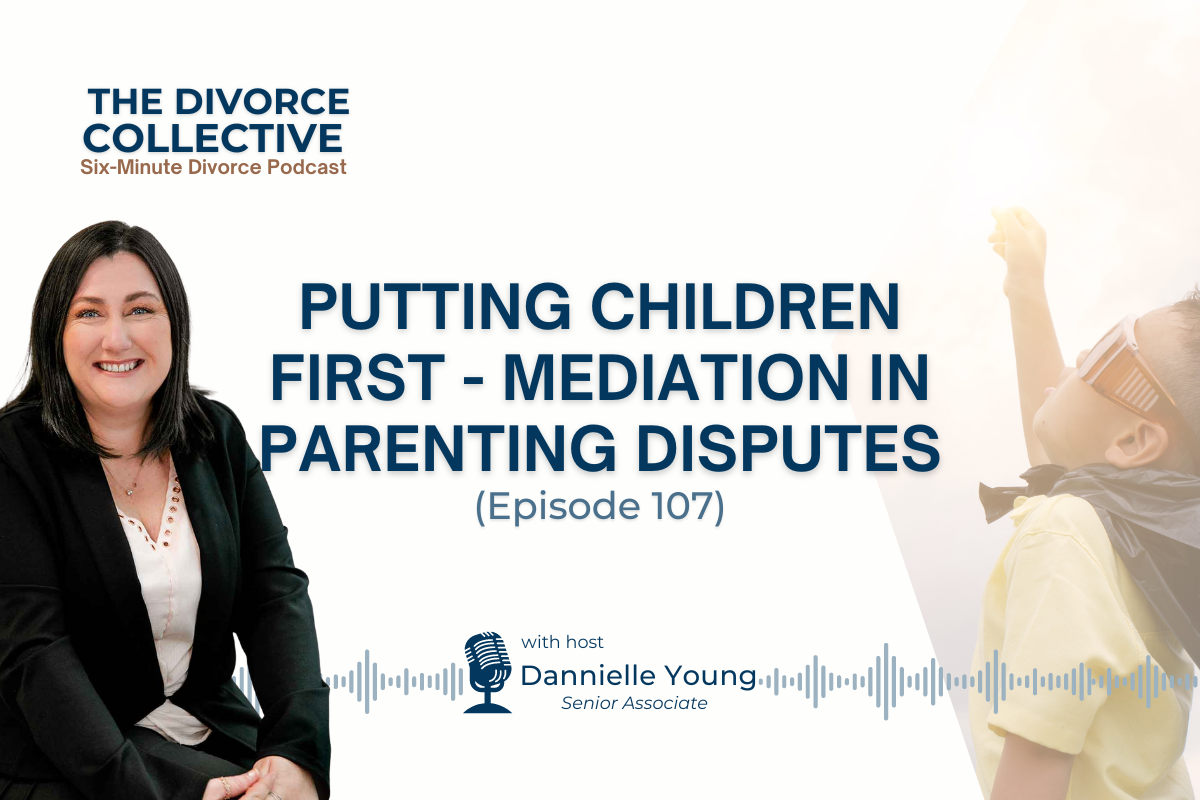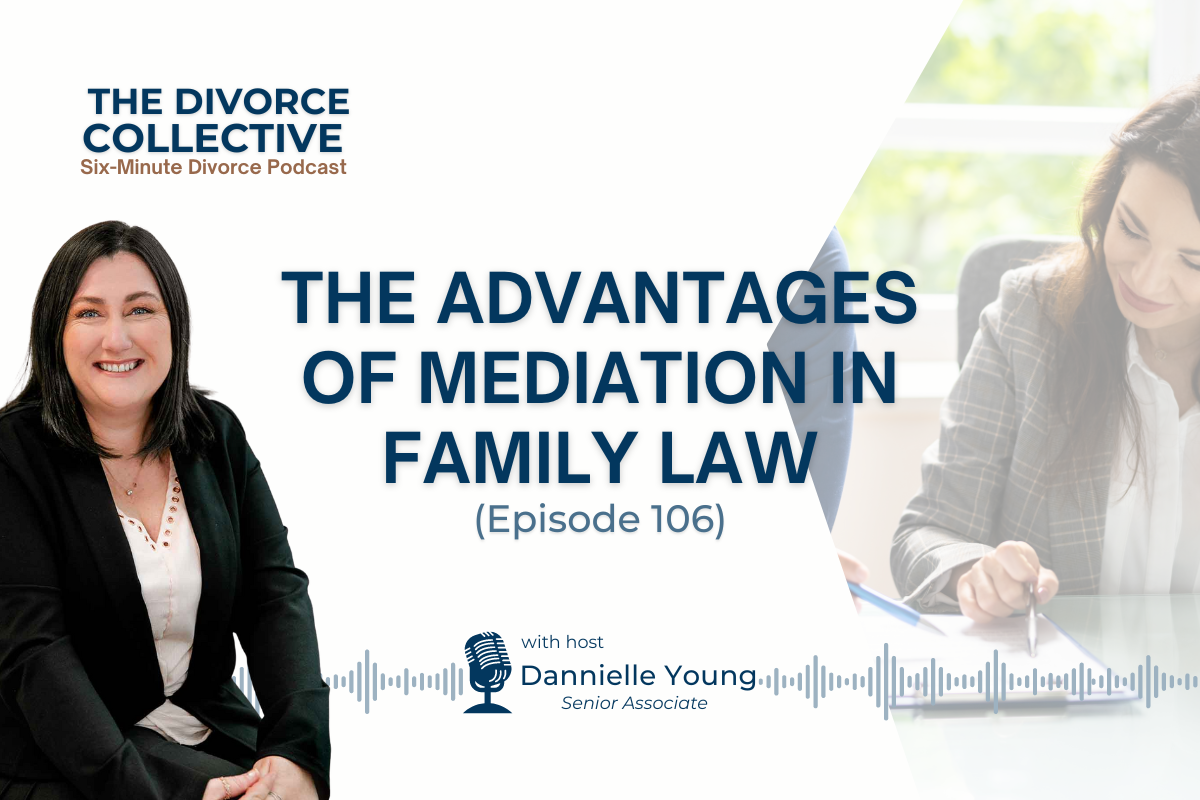On today’s podcast, our Senior Associate, Dannielle Young, will go through the healthy parenting arrangements in QLD and discuss the different mistakes parents can make during parenting arrangements.
When it comes to parenting matters during separation or divorce, it’s crucial to approach the process with caution, empathy, and a laser focus on the best interests of your children.
By navigating parenting matters during separation or divorce is undoubtedly challenging, but by being mindful of the common pitfalls and taking proactive steps to avoid them, you can provide your children with the stability and support they need
Remember to prioritise open communication, focus on the child’s best interests, document important information, manage emotions, and foster a positive co-parenting relationship. Doing so allows you to navigate this difficult time with empathy and ensure a brighter future for your children..
1. Lack of Communication and Cooperation:
One of the most detrimental pitfalls is a breakdown in communication and cooperation between co-parents. It is essential to establish open and respectful lines of communication, even if it feels challenging. Regularly sharing information about your child’s well-being, education, and extracurricular activities helps keep both parents informed and involved. Additionally, finding ways to cooperate on parenting decisions can contribute to a stable and harmonious co-parenting relationship.
2. Losing Sight of the Child’s Best Interest:
During a separation or divorce, it’s easy for parents to become overwhelmed by their own emotions and lose sight of what truly matters—the well-being of their children. To avoid this pitfall, it is crucial to prioritise the child’s needs above personal agendas or conflicts. Consider their emotional, physical, and educational requirements when deciding custody, visitation, and other parenting arrangements.
3. Neglecting the Importance of Documentation:
Documentation is vital in parenting matters, providing a record of important communications, schedules, and relevant documents. A communication log can help track discussions, agreements, and concerns. Similarly, maintaining a comprehensive schedule that outlines custody arrangements, visitation schedules, and other commitments ensures clarity and minimises misunderstandings. Documentation can be valuable in addressing disputes and demonstrating a commitment to the child’s best interests.
4. Allowing Emotions to Control Actions:
Separation or divorce is an emotionally charged time for everyone involved. However, letting emotions dictate your actions can lead to poor decision-making and unnecessary conflict. Seek support from professionals such as family lawyers, therapists, or counsellors to help you navigate the emotional challenges and develop strategies for effective co-parenting. You can provide your children with a more stable and nurturing environment by managing your emotions and fostering a cooperative mindset.
For a more in-depth discussion about this, you can head over to a previous podcast where Dannielle has dived deeper about this matter – Don’t Let it End in Regret.
5. Disparaging the Other Parent:
Speaking negatively about the other parent in front of your child is a detrimental mistake that can harm their emotional well-being. Avoid involving your child in adult conflicts or pressuring them to take sides. Instead, encourage a positive co-parenting relationship by respecting the other parent’s role and maintaining a civil demeanor. Shielding your child from animosity and creating a united front promotes their sense of security and stability.
Want to know more? Tune in and listen as our Senior Associate Dannielle Young takes you through the Pitfall Parents Make in Parenting Matters in the latest installment of the Divorce Collective Podcast.
Did you know at Collective Family Law Group, we offer FREE initial consultations. We offer initial face-to-face appointments in our Gold Coast, Brisbane and Cleveland offices or via zoom. Head on over to our website collectivefamilylaw.com.au or call us on (07) 5574 0971 to book your appointment.
CONNECT WITH COLLECTIVE FAMILY LAW:
Instagram: @Collective_Family_Law
Facebook: Collective Family Law Group
LinkedIn: Collective Family Law Group





